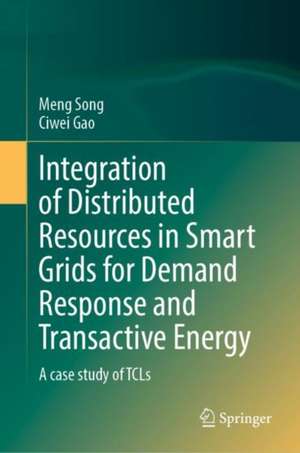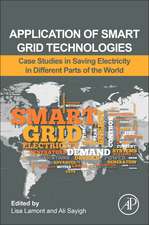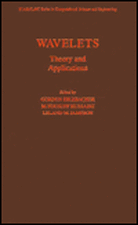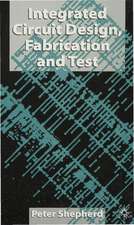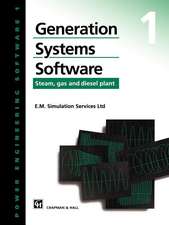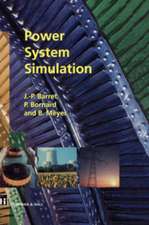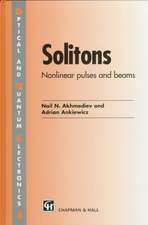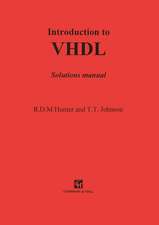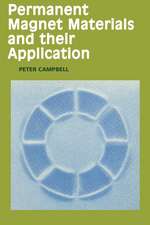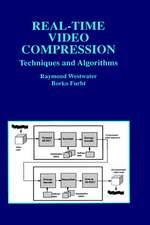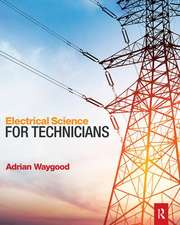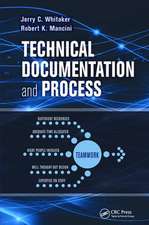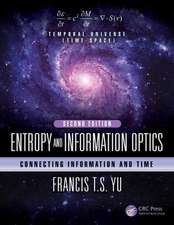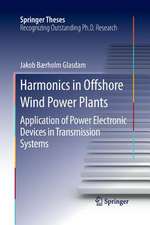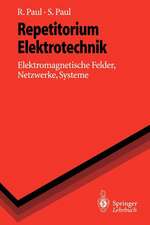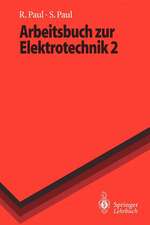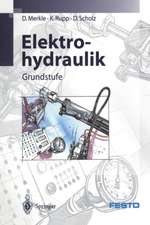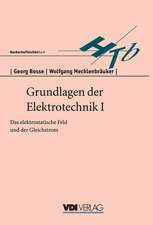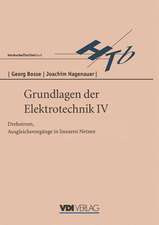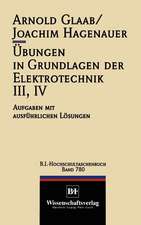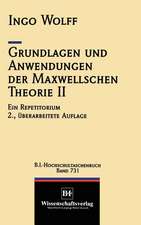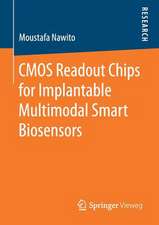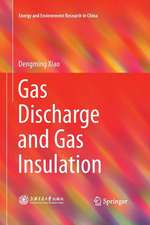Integration of Distributed Resources in Smart Grids for Demand Response and Transactive Energy: A Case Study of TCLs
Autor Meng Song, Ciwei Gaoen Limba Engleză Hardback – dec 2021
Thermostatically controlled loads (TCLs) (i.e., air conditioners, water heaters, and refrigerators) represent an exampleof distributed resources, the ratio of which to the total power consumption in developed countries is up to 30%–40%. Providing tremendous potentials in adjustable power consumption, TCLs have attracted major interests in DR and transactive energy opportunities. It has highlighted the advantages of TCLs in responding to uncertainties in power systems.
This book provides an insight of TCLs as typical distributed resources in smart grids for demand response and transactive energy to address the imbalance between supply and demand problems in power systems. The key points on analysis of uncertainty parameters, aggregated control models, battery modelling, multi-time scale control, transactive control and robust restoration of TCLs are all included. These are the research points of smart grids and deserve much attention. We believe this book will offer the related researcher a better understanding on the integration of distributed resources into smart grid for demand response and transactive energy. And it will be helpful to address the problems in practical projects.
| Toate formatele și edițiile | Preț | Express |
|---|---|---|
| Paperback (1) | 782.08 lei 6-8 săpt. | |
| Springer Nature Singapore – 2 dec 2022 | 782.08 lei 6-8 săpt. | |
| Hardback (1) | 787.50 lei 3-5 săpt. | |
| Springer Nature Singapore – dec 2021 | 787.50 lei 3-5 săpt. |
Preț: 787.50 lei
Preț vechi: 960.37 lei
-18% Nou
Puncte Express: 1181
Preț estimativ în valută:
150.74€ • 163.79$ • 126.70£
150.74€ • 163.79$ • 126.70£
Carte disponibilă
Livrare economică 31 martie-14 aprilie
Preluare comenzi: 021 569.72.76
Specificații
ISBN-13: 9789811671692
ISBN-10: 9811671699
Ilustrații: XXVIII, 260 p. 142 illus., 129 illus. in color.
Dimensiuni: 155 x 235 mm
Greutate: 0.6 kg
Ediția:1st ed. 2022
Editura: Springer Nature Singapore
Colecția Springer
Locul publicării:Singapore, Singapore
ISBN-10: 9811671699
Ilustrații: XXVIII, 260 p. 142 illus., 129 illus. in color.
Dimensiuni: 155 x 235 mm
Greutate: 0.6 kg
Ediția:1st ed. 2022
Editura: Springer Nature Singapore
Colecția Springer
Locul publicării:Singapore, Singapore
Cuprins
Chapter 1. Overview of TCLs in smart grids.- Chapter 2. Impact of Uncertain Parameters on TCL Power Capacity Calculation.- Chapter 3. Aggregated Control Models of TCLs for regulation services I.- Chapter 4. Aggregated Control Models of TCLs for regulation services II.- Chapter 5. Thermal battery modeling of TCLs and its comparisons to conventional batteries.- Chapter 6. Energy storage Models of TCLs under different control methods.- Chapter 7. Parameter identification of multi-time scale TCL aggregated models.- Chapter 8. Hierarchical scheduling of TCL flexibility for transactive energy.- Chapter 9. Multi-time scale transactive control and scheduling of TCLs for smoothing microgrid tie flow fluctuations.- Chapter 10. Robust Distribution System Load Restoration with Time-Dependent Cold Load Pickup.
Notă biografică
Prof. Meng Song received the B.S. degree from Southeast University, Nanjing, China in 2012, the M.S. degree from the Harbin Institute of Technology, Harbin, China in 2014, and Ph.D. degree from Southeast University in 2018. From 2018 to 2020, she was a Post-Doctoral fellow in University of Central Florida. She is currently working in the department of electrical engineering, Southeast University. Her research interests include demand response, smart grid modeling and control, transactive energy and power system resilience. She has focused on demand response and transactive energy for 6 years which covers her doctoral and postdoc duration and thus has a deep insight into this field. This book collects and summarizes most highlights of all her research.
Prof. Ciwei Gao is the full professor of school of electrical engineering, Southeast University, P.R.China. He is the IEEE senior member, received the B.S. degree from North China Electric Power University,Baoding, China in 1999, the M.S. degree from Wuhan University, Wuhan, China in 2003, and Ph.D. degree from Politecnico di Torino in 2006 and Shanghai Jiaotong University in 2007. He has More than 20 years research experience in the field of electrical engineering, focusing on electricity market, demand side management and demand response, power planning and integrated energy systems. Provide course “Power system analysis”, “Fundamentals of Power Economics” and “Power Planning” in the university for the graduate and undergraduate students. Authored nearly 200 publications of journals or conferences. PI of more than 100 research projects cooperating with State Grid Corporation of China, Southern Grid Corporation of China, China EPRI (Electrical Power Research Institute), Electricity/Energy Regulation Agencies, Energy Foundation of America and Prosperity Fundation of UK etc.
Prof. Ciwei Gao is the full professor of school of electrical engineering, Southeast University, P.R.China. He is the IEEE senior member, received the B.S. degree from North China Electric Power University,Baoding, China in 1999, the M.S. degree from Wuhan University, Wuhan, China in 2003, and Ph.D. degree from Politecnico di Torino in 2006 and Shanghai Jiaotong University in 2007. He has More than 20 years research experience in the field of electrical engineering, focusing on electricity market, demand side management and demand response, power planning and integrated energy systems. Provide course “Power system analysis”, “Fundamentals of Power Economics” and “Power Planning” in the university for the graduate and undergraduate students. Authored nearly 200 publications of journals or conferences. PI of more than 100 research projects cooperating with State Grid Corporation of China, Southern Grid Corporation of China, China EPRI (Electrical Power Research Institute), Electricity/Energy Regulation Agencies, Energy Foundation of America and Prosperity Fundation of UK etc.
Textul de pe ultima copertă
The proliferation of renewable energy enhances the sustainability of power systems, but the inherent variability also poses great challenges to the planning and operation of large power grids. The corresponding electric power deficiencies can be compensated by fast ramping generators and energy storage devices. However, frequent ramp up/down power adjustments can increase the operation and the maintenance cost of generators. Moreover, storage devices are regarded as costly alternatives. Demand response (DR) and transactive energy can address this problem owing to its attractive and versatile capability for balancing the supply-demand, improving energy efficiency, and enhancing system resilience. Distributed resources are the typical participants of DR and transactive energy programs, which greatly contribute to keep the supply and demand in a balance.
Thermostatically controlled loads (TCLs) (i.e., air conditioners, water heaters, and refrigerators) represent an example of distributed resources, the ratio of which to the total power consumption in developed countries is up to 30%–40%. Providing tremendous potentials in adjustable power consumption, TCLs have attracted major interests in DR and transactive energy opportunities. It has highlighted the advantages of TCLs in responding to uncertainties in power systems.
This book provides an insight of TCLs as typical distributed resources in smart grids for demand response and transactive energy to address the imbalance between supply and demand problems in power systems. The key points on analysis of uncertainty parameters, aggregated control models, battery modelling, multi-time scale control, transactive control and robust restoration of TCLs are all included. These are the research points of smart grids and deserve much attention. We believe this book will offer the related researcher a better understanding on the integration of distributed resources into smart grid for demand response and transactive energy. And it will be helpful to address the problems in practical projects.
This book provides an insight of TCLs as typical distributed resources in smart grids for demand response and transactive energy to address the imbalance between supply and demand problems in power systems. The key points on analysis of uncertainty parameters, aggregated control models, battery modelling, multi-time scale control, transactive control and robust restoration of TCLs are all included. These are the research points of smart grids and deserve much attention. We believe this book will offer the related researcher a better understanding on the integration of distributed resources into smart grid for demand response and transactive energy. And it will be helpful to address the problems in practical projects.
Caracteristici
Provides a series of key technologies of integrating distributed resources into smart grids Offers some emerging research points on transactive energy and demand response Covers almost all aspects of TCL applications in smart grids
